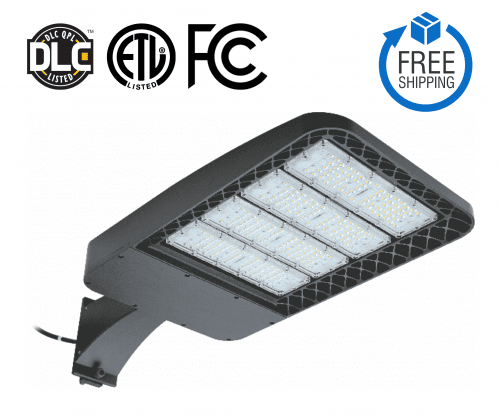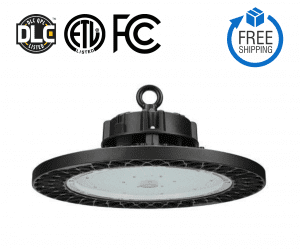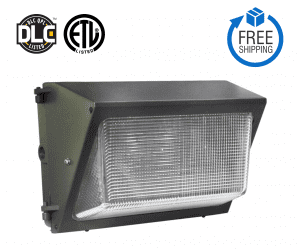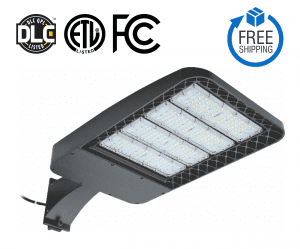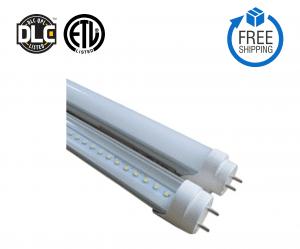Description
- Super bright High-power LED
- High efficiency, energy Saving, Eco-friendly
- Aluminum alloy frame with high-thermal conductivity
- Integrated heat dispersion structure, low lumen depreciation and long lifespan
- Constant current driver
- Easy to install
Specifications
| Nominal Wattage | 240W |
| Lumens | 31,200 |
| LED Lifetime | >50,000 hours |
| Color Temperature | 3000K – 5700K |
| Power Factor | 0.9 |
| Temperature Range | -20 ?C to +40 ?C |
| Certifications | ETL, FCC, RoHS |
| DLC Listed | Yes |
| Equivalent | 700W |
| Efficacy | 130 Lm/W |
| Operating Voltage | AC 100-277V |
| CRI | Ra>80 |
| Dimmable | 0-10V |
| Optical Control | Optional Microwave Motion Sensor |
| Enclosure Protection | IP65 |
| Warranty | 5 Years |
| Weight | 11kg |
Download product Cut sheet
Knowledge Base
What are LED Shoebox Lights?
Shoebox lights are typically the outdoor lights mounted on poles that are used to illuminate streets and parking lots. The name ‘shoebox’ is a reference to the size and shape of the fixture. Here some examples of shoebox light fixtures:
Where are Shoebox Lights used?
Along with roadways and parking lots, shoebox flood lights can be found illuminating sidewalks, pathways, parks and many outdoor areas. They are often mounted on poles but can be mounted directly to the side of buildings. There are several common mounting options: pole mount, yoke mount and slip fitter.
What lighting is best for parking lots?
LED shoebox lights are a great lighting source for many different applications like parking lots, roads, and highways. Ensuring people’s safety is paramount and is easily attained with shoebox light fixtures. Order LED shoebox lighting from Warehouse Lighting.
How many lumens are needed for a parking lot?
If you want the light to cover 15 to 20 feet it is best to look for 16000 to 20000 lumens. On the other hand, if you want to cover 20 to 30 feet, 40,000 lumen light is an ideal choice.
What are the lights in parking lots called?
What are the lights in a parking lot called? The lights found in a parking lot are commonly called “parking lot light poles” or “LED light poles.” They also are sometimes mistakenly referred to as street lights, but that is not correct.
What wattage are parking lot lights?
The average wattages for LED parking lights range from 65 to 400 watts, while HID (large fluorescent lamps traditionally found in parking lots) range from 400 to 1000 watts. This could result in thousands of dollars in electric savings by switching to LED street lighting.
How long do LED parking lights Last?
More Cost-Effective: The initial outlay for LED parking lot lights will be more, especially if you retrofit old fixtures. But this cost is well worth it. Consider that LED lights typically last 100,000 hours, meaning it will be 5 to 25 years before you’ll have to replace them.
How many lights do you need for a parking lot?
We usually recommend two LED Parking lot lighting heads of 20,000 lumens each at about 15-20 feet high on each pole. Space the pole about 20 feet apart. That is average lighting.
What voltage are parking lot lights?
A 480 volt parking lot light is a high voltage parking light that works when parking lot lights are wired for such. Engineers use higher voltage because it lowers the amps needed (amps = watts/voltage) so higher the voltage the lower the amps.
How are parking lot lights controlled?
Photocells and mechanical time clocks or electronic time clocks are two simple ways to control LED parking lot lights. Combined, they are an excellent way to control LED parking lot lights. This is how it is installed.
How tall are parking lot lights?
Mounting height for parking lot lights can range from 12 ft. to 20 ft. but in some cases can reach as high as 35 ft. The size of your parking lot will be used to determine the recommended height of your poles; larger areas are better suited to higher poles and vice-versa.
Do LEDs really last 50000 hours?
The average lifespan of an LED is often rated up to 50,000 hours. This is about 50 times longer than a typical incandescent, 20-25 times longer than a typical halogen and 8-10 times longer than a typical CFL. If used 12 hours a day, an LED rated at 50,000 hours will last more than 11 years.

